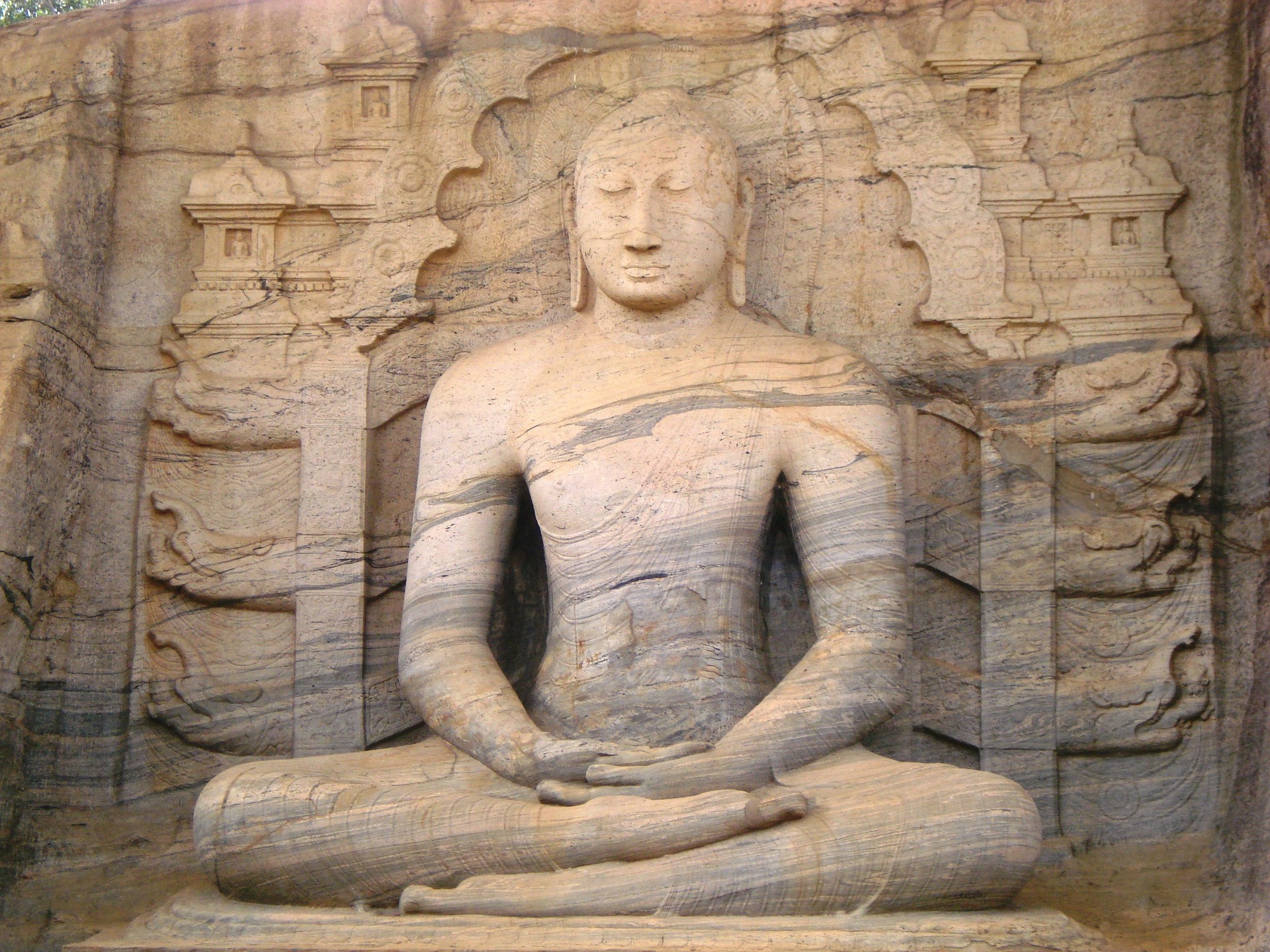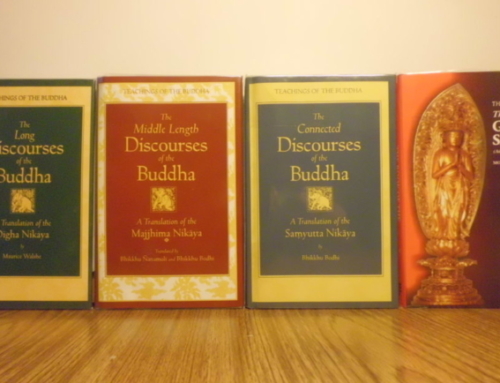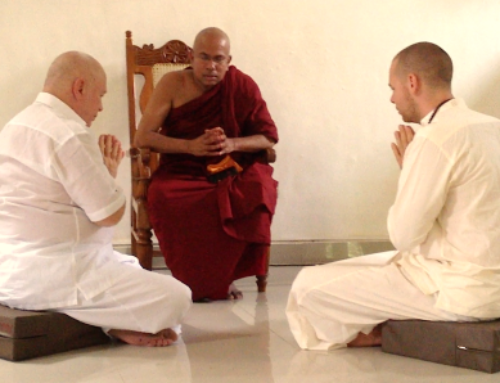Buddhism is different than the other major world religious traditions because it is not oriented around God but oriented around human beings, So Buddhism is a philosophy, what Buddha taught is that we create our own mental suffering and the path out of suffering lies with us. The Buddha explained to us that dissatisfactions or mental suffering arise because of our own mental state. Buddha taught that we suffer because we crave for things, because we are focused on ego and because we assume things are permanent when they are actually temporary. We can alleviate suffering by changing our perception of ourselves and our world by recognizing that everything is temporary even ourselves. And by understanding the changing nature of all things, so Buddhist Meditation aims at purifying the mind, which enables one to develop the wisdom to realize the true nature of things.
Though considered a major world religion, upon examination Buddhism is not a religion at all. There is a doctrine (The Dhamma), but no deity or God to pray to. The central focus of Buddhism is not creation, sin, or necessarily an after-life, it is instead a focus on life as we experience it now. The lack of a deity, the focus on love, kindness, and compassion is exactly why the teachings of the Buddha are universally accepted, and why you will often find Buddhist scholars and practitioners within every religion. Even atheists and those who describe themselves as “spiritual but with no religious affiliations”, are among those who try to live by the lessons of the Buddha.
So, what is Buddhism? A very simple definition is that Buddhism is the practice of living our lives in as realistic, and compassionate manner as possible. We do this by using the lessons from the Buddha’s understanding of how our lives are made more difficult by how we perceive moments in our life. When we desire an item, a relationship, a change in circumstance, and do not get what we want, we can become very unhappy emotionally. By examining our reactions, beliefs, and desires, it is possible to see a more clear picture of how life truly is, not as we might believe it is. Seeing this, we begin to understand the true nature of ourselves and the world around us.
As followers of The Buddha’s teachings, we strive to understand his lessons and to live our lives with feelings of love, and compassion toward all beings.
Is Buddhism a philosophy alone..?
Buddhism is called a philosophy by some people. There is truth in this term. Lord Buddha’s philosophy is the reality of the world. Since one can free himself or herself from suffering through the practice of this doctrine, Buddhism can also be called a religion.
Who is Lord Buddha?
Lord Buddha has passed away, how can He help us now?
Is Lord Buddha a god?
Lord Buddha is not a god, nor is He a normal human being. He was born among human beings and achieved enlightenment, becoming the greatest of all beings.
If He is not a god why is He venerated by human beings?
Why are Buddha Images worshipped?
We Buddhists have a place of worship; it is called a vihāra. The Blessed One is offered the first place in a vihāra. Out of respect and veneration Lord Buddha’s image is worshiped in a vihāra. But, an image can never do justice to the great physique of Lord Buddha, depicting his thirty great physical features. We worship the image by visualizing the great qualities of Lord Buddha.
What is the meaning of strange worships taking place in Buddhist vihāras?
In Buddhist vihāras various kinds of Buddhist worship take place. In some vihāras the sounding of belfries, lighting of lamps, incense, the offering of flowers and food (dāna) etc., take place. All these are done as an offering to the Lord Buddha. However, Lord Buddha clearly taught that the greatest way to honour Him is through the practice of the doctrine taught by Him and to free oneself from the continuous cycle of birth and death.
Why have multiple Buddhist traditions been born in the world..?
The Dhamma preached by Lord Buddha existed for generations through Arahants and noble Buddhist monks who retained the doctrine by memory. Over time however, personal views have also emerged. These views, masked as Dhamma amongst the Buddhist clergy, resulted in the development of sects within Buddhism, hence, the birth of the multiple Buddhist traditions that exist today. But the truth is, Nibbāna can be attained only by strict adherence to the pure Dhamma as expounded by Lord Buddha. There is no dispute about that. So, even today, if one can discipline oneself in the pure Dhamma as explained in the Nobel Eightfold Path he or she will attain freedom from the never ending journey of life, regardless of which sect he or she belongs to. This pure Dhamma you will hear through Buddha Vision.






